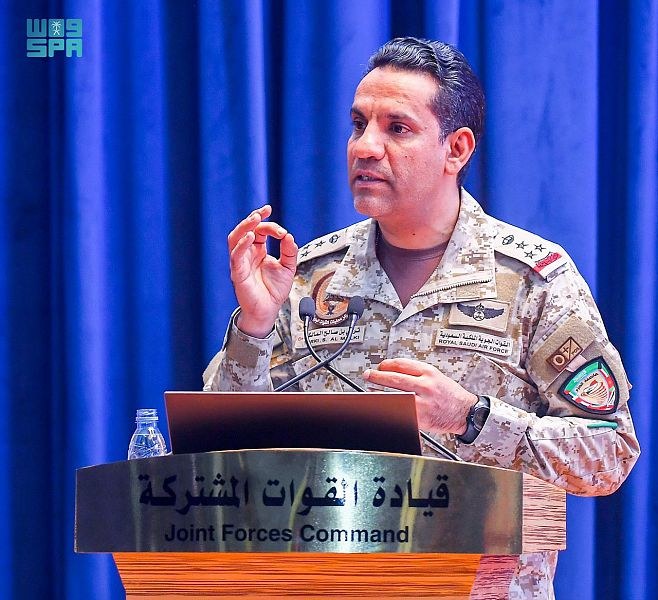LONDON: The Arab coalition said it had monitored and documented a preparation to launch “a hostile action” with an explosive-laden boat from the Yemeni port of Salif, Saudi state TV reported on Wednesday.
The coalition also said that the planning and executing of the hijacking of a UAE-flagged ship was launched from the key Red Sea port of Hodeidah.
The coalition said “Hodeidah port is a major center for receiving and assembling Iranian ballistic missiles” and both “Hodeidah and Salif are major centers of hostilities and a threat to maritime security.”
On Monday, the Iranian-backed Houthi militia based in Hodeidah seized the Rwabee ship, which the coalition said was carrying medical field equipment to build a hospital Yemen’s Socotra island.
Saudi Arabia condemned what it called piracy against a civilian vessel.
“The terrorist, Iran-backed Houthi militia must promptly release the commercial cargo ship with all its humanitarian, non-combatant cargo intact,” coalition spokesman Turki Al-Malki said.
“Should the militia fail to comply, all ports that launch and harbor these acts of piracy, hijacking and armed robbery, and those pirates who perpetrate them will render said ports legitimate military targets,” he added, in a statement issued by Saudi Press Agency.
The EU Delegation in Yemen condemned the Houthi hijacking and said the seizure is of deep concern.
We urge the immediate release of the ship and its crew, and call for restraint to avoid further tensions. (2/2)
— EUinYemen (@EUinYemen) January 5, 2022
“It increases the risk of further escalation and undermines ongoing efforts to end the fighting, and for a political resolution of the conflict,” it said in a tweet.
It also called on the Houthis to immediately release the ship and its crew, and for restraint to avoid further tensions.
(With AFP)


























